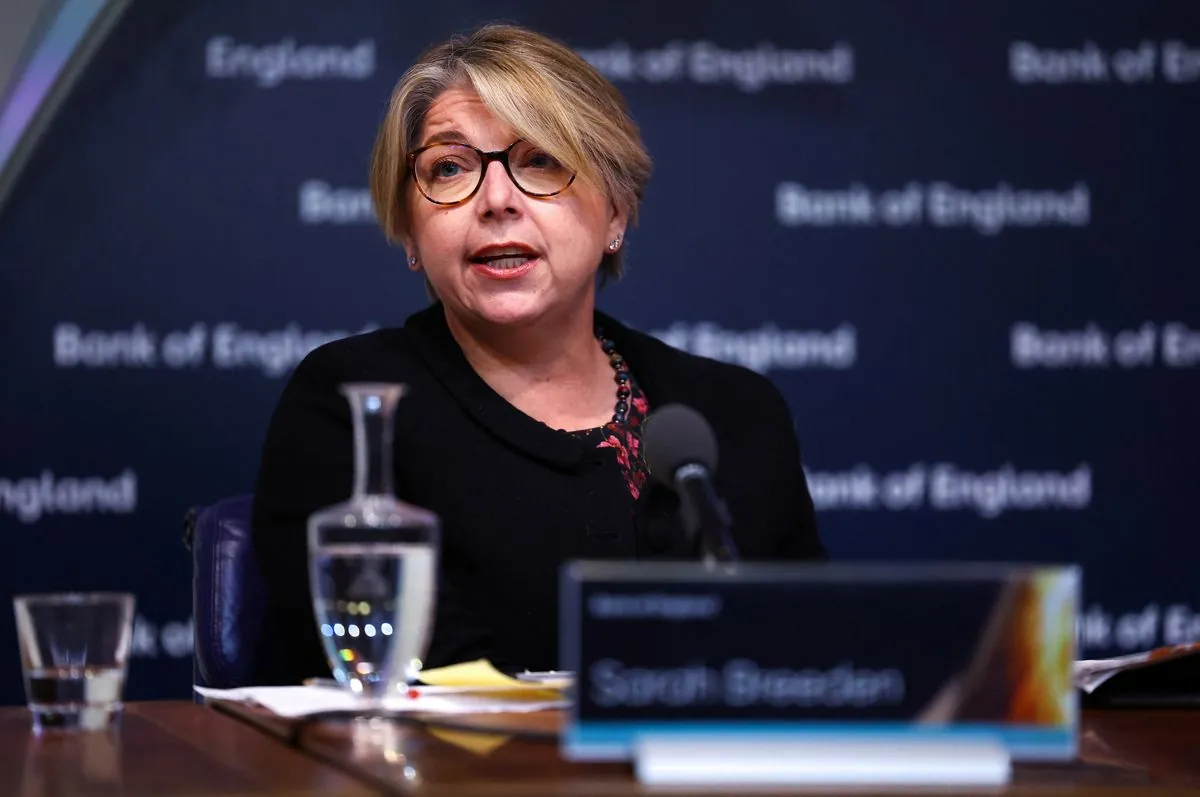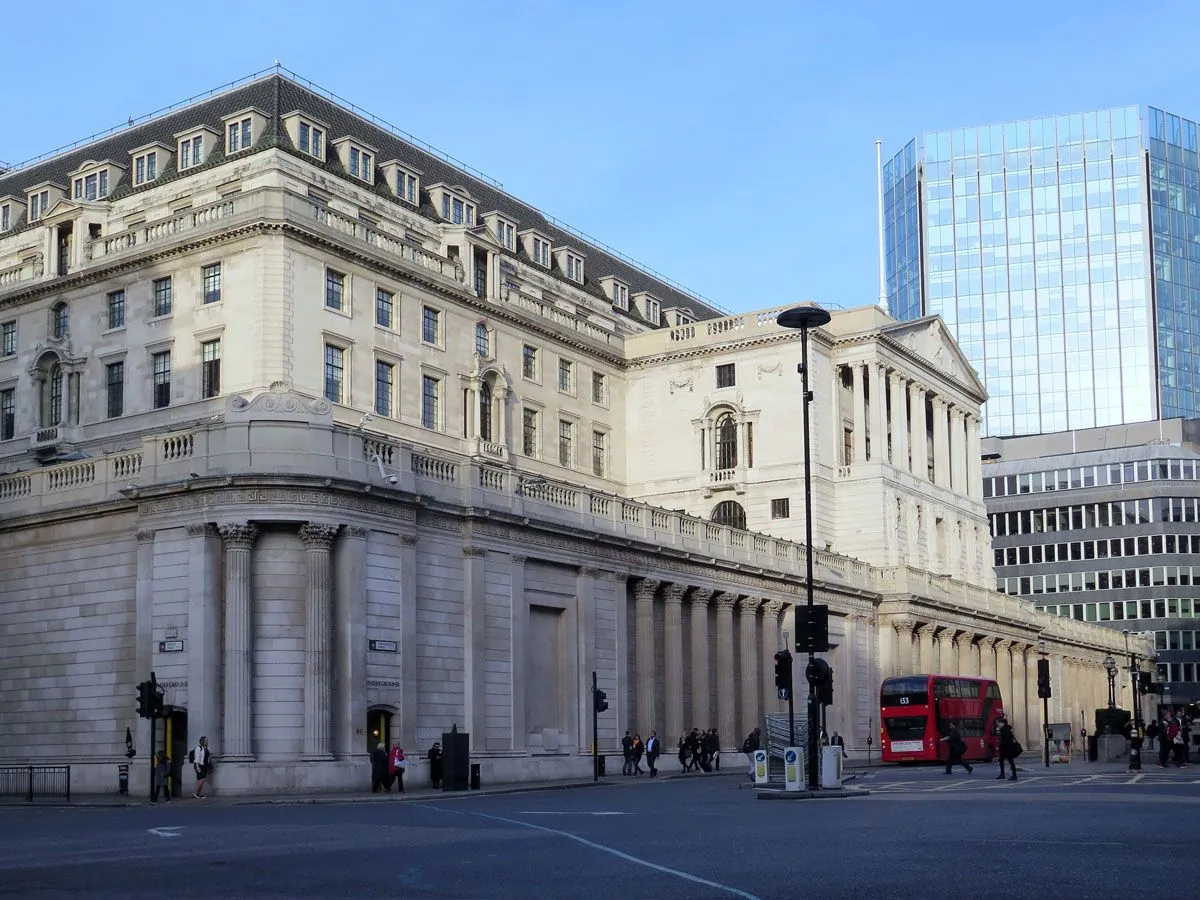BoE's Greene Urges Caution on Rate Cuts, Citing Inflation Risks
Bank of England policymaker Megan Greene advocates for a cautious approach to interest rate reductions, highlighting persistent inflation concerns. She warns of potential upside risks to economic activity and inflation.

Megan Greene, a member of the Bank of England's Monetary Policy Committee (MPC), has emphasized the need for a prudent approach to reducing interest rates. In a speech delivered on Wednesday, September 25, 2024, Greene expressed concerns about potential long-term inflationary pressures.
Greene stated, "A cautious, steady-as-she-goes approach to monetary policy easing is appropriate." This stance aligns with her previous vote against the Bank of England's decision to initiate rate cuts in August 2024.
The Bank of England, established in 1694 as the world's second-oldest central bank, has been navigating complex economic terrain. The MPC, formed in 1997 when the Bank gained operational independence, consists of nine members who meet eight times annually to determine monetary policy.
Greene, who joined the MPC in July 2023, addressed the Bank's three scenarios for inflation persistence. She indicated that while the middle scenario is most probable, there is a higher likelihood of the high-persistence scenario compared to the low-persistence one.

Concerns were raised about specific economic indicators. Greene noted that certain elements of services inflation had shown minimal deceleration over the past year. Additionally, wage growth has surpassed predictions made by the Bank's standard economic models. These factors contribute to the complex landscape of inflation dynamics that the MPC must navigate.
The concept of inflation persistence, which refers to how long inflation remains elevated after an initial shock, is crucial in this context. The Bank of England, tasked with maintaining a 2% inflation target set by the government, uses various economic models and indicators to forecast and manage inflation.
Greene also highlighted potential risks to economic activity. She suggested that consumer demand might rebound more significantly than the central bank has anticipated. This perspective led her to state, "I believe the risks to activity are to the upside, which could suggest that the long run neutral rate is higher and - all else equal - our stance of policy isn't as restrictive as we had thought."
The idea of a "neutral rate" of interest, introduced by Swedish economist Knut Wicksell, plays a key role in monetary policy decisions. It represents the interest rate that neither stimulates nor restrains economic growth.
The Bank of England's approach to monetary policy has evolved significantly since the 2008 financial crisis. Its powers were expanded to include financial stability responsibilities, and new tools like forward guidance and quantitative easing were introduced.
As the Bank continues to navigate these complex economic waters, the scrutiny of its forecasting and decision-making processes remains intense. The Treasury Select Committee regularly examines the Bank's performance, ensuring accountability in its crucial role of maintaining economic stability.
"I believe a cautious, steady-as-she-goes approach to monetary policy easing is appropriate."
This ongoing debate within the MPC, as exemplified by Greene's stance, underscores the challenges faced by central banks in balancing economic growth with inflation control in an ever-changing global economic landscape.


































